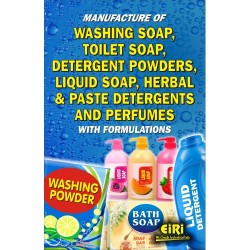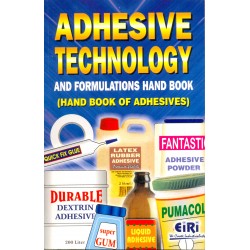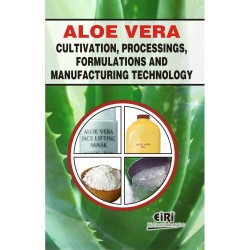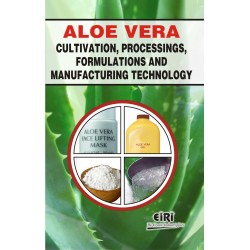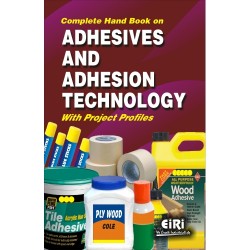Complete Technology Handbook on Electrical Wire and Cable Production (Aluminum Wire, Barbed Wire, Copper Wire, Wire Nail, Wire Mesh, Galvanised Wire, PVC Wire and Cable, Fiber-Optic Cable, Coaxial Cable, Power Cord Cable, XLPE Cable)

- More than 40 years of experience
- Managed by expert industrial consultants
- ISO 9001-2015 Certified
- Registered under MSME, UAM No: DL01E0012000
- 24/5 Research Support
Get your quesries resolved from an industry expert. Ask your queries before report or book purchase. - Custom Research Service
Speak to the our consultant to design an exclusive study to serve your research needs. - Quality Assurance
All reports are prepared by highly qualified consultants & verified by a panel of experts. - Information Security
Your personal & confidential information is safe & secure.
In the ever-connected, electrified world of today, electrical wires and cables are the unsung heroes that power our lives. From the simplest wiring systems that illuminate our homes to the intricate networks that enable global communication, the significance of these slender conduits cannot be overstated. "Complete Technology Handbook On Electrical Wire And Cable Production" is your gateway to unraveling the complexities and subtleties of this essential industry.
This handbook, an extensive compilation of knowledge, offers a comprehensive insight into the diverse universe of electrical wires and cables. It serves as an indispensable resource for not only professionals and engineers but also for students, aspiring entrepreneurs, and anyone intrigued by the marvels of electrical connectivity. Our exploration commences at the very foundation in Chapter 1, acquainting you with the basic components that constitute an electrical cable and delineating the distinctions between wires and cables.
The following chapters are a journey through the entire lifecycle of electrical cables, from their inception as raw materials to their final applications. We dive deep into copper wires, the workhorses of electrical systems, and uncover the countless domains where they play pivotal roles, from telecommunications to the automotive industry and even jewelry. You'll be enlightened on the remarkable properties of copper that make it indispensable for the electrical world, from high conductivity to durability and thermal resistance.
But copper is just one piece of the puzzle. This handbook traverses through the manufacturing processes of a variety of cables, including fiber optics, power cords, coaxial cables, and more. It dissects the intricacies of spring manufacturing, wire nail production, and wire mesh creation. You will learn not only the raw materials and designs but also the intricate machinery and quality control measures that shape these products.
We explore the evolution of copper wires and the upcoming trends in their utilization. Fiber optics, the lifeblood of modern communication, undergo a step-by-step breakdown, elucidating everything from the preparation of raw materials to the production of optical cable integrated jacketing.
We delve into the production of power cord cables, the essential lifelines that connect us to the electrical grid. You will understand the terminology, connectors, and the multitude of cable types employed in different settings, from computer networking to medical applications. As we unfold each chapter, the intricacies of the electrical world are laid bare before you. We highlight the processes, standards, and economic aspects of production, giving you a 360-degree understanding of this vibrant industry.
Our journey does not end with wires and cables; we delve into the processes of manufacturing, quality control, and the ins and outs of setting up your own cable manufacturing business. The book meticulously guides you through every step of the production process, shedding light on the challenges and opportunities that await.
By the time you reach the final pages of this handbook, you will have journeyed through the entire spectrum of electrical cable and wire production. Whether you are an entrepreneur looking to enter this thriving field, an engineer seeking to deepen your understanding, or a student intrigued by the marvels of modern technology, this handbook will equip you with the knowledge needed to thrive in the world of electrical wires and cables.
The book Complete Technology Handbook on Electrical Wire and Cable Production (Aluminum Wire, Barbed Wire, Copper Wire, Spring, Steel Wire Rope, Wire Nail, Wire Mesh, Galvanised Wire, PVC Wire and Cable, Fiber-Optic Cable, Coaxial Cable, Ethernet Cable, Submersible Cable, Power Cord Cable, XLPE Cable) contains chapters on Introduction, How are Electrical Wires Manufactured?, Copper Wires, Copper Wire Manufacturing Process, Copper Wires and Upcoming Trends, How to Start a Spring Manufacturing Plant?, Springs, How are Springs Made?, Wire Nail Manufacturing Business Idea, Wire Nails , Wire Nail Manufacturing Process, Wire Mesh, Welded Wire Mesh Manufacturing Process, Motions in Wire Mesh Weaving Process, Fiber Optic Manufacturing Process, Fiber Optic Patch Cord and Pigtail Production Process, Fiber-optic Cable, PVC Wire and Cable, How to Start PVC Cables Manufacturing Business?, Wire PVC Coating Line, Roll Mesh PVC Coating Line, Fence PVC Coating Line, Wire Drawing Process, Aluminum Wire, Steel Wire Rope, Wire Ropes Produce Process, Galvanised Wire, Wire Galvanising Plant, Coaxial Cable, Coaxial Cable Manufacturing Process, Ethernet Cable, Litang Cable LAN/Ethernet Ethernet Cable Manufacturing Process, Power Cord Cable, Power Cord Cable Manufacturing Process and Equipment, Submersible Cable, Submersible Winding Wire Plant, How to Start Barbed Wire Production Business, Barbed Wire, Barbed Wire Manufacturing Process, XLPE Cable, Manufacturing Process of XLPE Cable, Electrical Cable Coating, BIS Specifications, ISO Standards, Plant Economics of ABC Cable, Plant Economics of Binding Wire for Construction, Plant Economics of Copper Wire and PVC Cable, Plant Economics of Electrical Wire and Cable, Plant Economics of House Wire/Low Voltage Production Plant, Plant Economics of Mild Steel Wire Drawing, Plant Economics of Optical Fiber Cable, Plant Economics Of Submersible Copper Winding Wire, Plant Economics of Wire and Cable Manufacturing Unit, Plant Economics of Wire Nails (Ms) Manufacturing.
Embrace this journey through the wires and cables that power our world, and be prepared to unlock the boundless potential of this pivotal industry. This is your gateway to mastering the intricate art and science of electrical wire and cable production.
Chapter 1
Introduction
Components of an Electrical Cable
Wire
Cable
Different uses of Wire and Cable
Use of Wire
Use of Cable
Types of Wire and Cable
Types of Electrical Wires
Types of Electrical Cables
Different advantages of using Wire and Cable
Advantages of Wire
Advantages of Cable
Chapter 2
How are Electrical Wires Manufactured?
Wire drawing
Annealing
Wiring
Contents-cum-Index Hot extrusion
Voltage testing
Phase wiring
Additional protection
Chapter 3
Copper Wires
Types of Copper Wire
Solid Copper Wire
Stranded Copper Wire
Tinned Copper Wire
Applications
Electrical wiring
Communications wiring
Structured wiring
Power distribution
Appliance conductors
Automotive conductors
Magnet wire
Uses of Copper Wire
Telecommunication
Electricity Supply
Automobile Industry
Jewellery
Other Uses
Properties of Copper
How Copper Conducts electricity?
Properties of Copper Useful for the Copper Wire
High Conductivity
Durability
Cost-Effective
Ductile metal
Conductor of electricity
Thermal conductor
Corrosion-resistant
Malleable
Properties of Copper
Workability
Electrical/Heat Conductivity
Durability
Anti-Bacterial
Recyclable
Tensile strength
Ductility
Strength and ductility combination
Creep resistance
Corrosion resistance
Coefficient of thermal expansion
Thermal conductivity
Solderability
Ease of installation
Splice Closures for Copper Cables
Types of closures
Future trends
Pure Copper & its importance
Chapter 4
Copper Wire Manufacturing Process
Drawing Process
Annealing Process
Bunching/Stranding Process
Tinning Process
Hot dip process
Electroplating process
Braiding
Process for Tinsel Wire
Process of Glass Wire
Copper Wire Recycling Process
Negative impacts of using low temperature Burning process
Benefits of recycling copper wire
Chapter 5
Copper Wires and Upcoming Trends
Prominent use of copper wires
Copper: A preferred metal for electric wiring purpose
Superior tensile strength
Higher ductility
Incredible flexibility
Upcoming trends related to copper wire and cable
Chapter 6
How to Start a Spring Manufacturing Plant?
Raw Materials
Design
The Manufacturing Process
Coiling
Hardening
Finishing
Quality Control
The Future
Chapter 7
Springs
Material Used in Springs
Classification of Springs
On the Basis of Load Applied
Torsion Spring
Compression Spring
Extension Spring
On the Basis of Displacement Due to Force Applied
Constant Force Spring
Variable Rate Spring
Linear Spring
On the Basis of Construction
Coil Spring
Flat Spring
Molded Spring
Applications of Steel Springs
High-Carbon Spring Steels in Wire Form
High-Carbon Spring Steels in Flat Strip Form
Alloy Spring Steels
Stainless Spring Steels
Copper-Base Spring Alloys
Nickel-Base Spring Alloys
Nickel-Base Spring Alloys with Constant Moduli of Elasticity
Metal Springs
Introduction
Types of Springs
Helical Compression Springs
Helical Tension Springs
Helical Torsion Springs
Special Springs:
Spring End Types
Common Spring Materials
Carbon Steel Springs
Alloy Steel
Stainless Steels
Non-Ferrous Alloys
Chapter 8
How are Springs Made?
Spring Winding
Heat Treating
Grinding
Coating and Finishing
Custom Spring Manufacturing Process
Packaging
Chapter 9
Wire Nail Manufacturing Business Idea
Legal procedure related to manufacturing of iron wire nails
The processing:
Related machine for nails making
Nail polishing machine
Wire drawing machine to make nail making wire
Chapter 10
Wire Nails
Cut and Wire Nails Differently
Cut Nails
Wire Nails
How Cut and Wire Nails Differ
Uses
Specifications
Applications
Market Potential
Global Round Wire Nails Market: Segment Analysis
Types of Nails
Common Nails
Framing Nails
Sinking Nails
Box Nails
Deck Nails
Roofing Nails
Masonry Nails
Siding Nails
Duplex Nails
Joist Hanger Nails
Pole Barn Nails
Connectors Nails
Cap Nails
Finish Nails
Trim Nails
Brad Nails
Pin Nails
Drywall Nails
Flooring Nails
Panel Board Nails
Furniture Nails
Chapter 11
Wire Nail Manufacturing Process
Design
Raw Materials
The Manufacturing
Process
Forming
Additional forming
Finishing
Packaging
Quality Control
The Future
Technical Data of Wire Nail Making Machine
Wire Nail Making Machine N1
Wire Nail Making Machine IN3
Wire Nail Making Machine IN 2+3
Wire Nail Making Machine IN6
Wire Nail Making Machine IN4
Chapter 12
Wire Mesh
A great variety of shapes and applications
Wire mesh materials & their main characteristics
Welded wire mesh
Wire fabrics
Wire nettings
Basics of Wire Mesh
How Wire Mesh is Made
Wire Weaving
Welded Wire Mesh
Types of Wire Mesh
Welded Wire Mesh
Galvanized Wire Mesh
Vinyl-Coated Wire Mesh
Welded Steel Bar Gratings
Stainless Steel Wire Mesh
Wire Mesh Patterns
Crimped Wire Mesh
Non-Crimped Wire
Double Weave Wire Mesh
Flat Top Weave Wire Mesh
Twill Weave Wire Mesh
Dutch Weave Wire Mesh
Off Count Wire Mesh
Stranded Weave Wire Mesh
Mesh Count
Wire Mesh Edges
Wire Used to Make Wire Mesh
Carbon Steel in Wire Mesh
Stainless Steel in Wire Mesh
Aluminum Wire in Wire Mesh
Copper in Wire Mesh
Brass in Wire Mesh
Bronze in Wire Mesh
Uses for Wire Mesh
The Benefits of Wire Mesh
Market Potential
Basis and Presumptions
Chapter 13
Welded Wire Mesh Manufacturing Process
Wire rod
Cold rolling
Straightening & cutting
Welding
Bending & cutting
Finished mesh
Chapter 14
Motions in Wire Mesh Weaving Process
Steps Involved in Weaving
Shedding motion
Weft insertion motion
Beating-up motion: pushing the newly inserted weft wire into the already woven fabric.
Take-up motion
Let-off motion
Modern Weaving Technology
Chapter 15
Fiber Optic Manufacturing Process
Step 1: Preparation and Purification of Fiber Optic Raw Materials
Step 2: Fiber Optic Core-rod Melting and Surface Treatment.
Step 3: Wire Drawing and Primary Coating Process.
Primary Coating process
Step 4: Fiber Optic Cable Tension Sorting and Coloring Process.
Tension Sorting
Fiber Optic Coloring Process
Step 5: Secondary Coating or Plastic Coating of Fiber Optic
Step 6: Fiber Optic Cable Core Manufacturing Process (Cable Forming Process)
Cable Forming Technology of Layer Stranded Optical Cable
Step7: Extrusion Technology of Optical Cable Integrated Jactketing
Water Blocking Technology of Optical Cable
Longitudinal Jacketing Process
Plastic Extrusion Process
Armored Technology
Integrated Jacketing Production Line
Chapter 16
Fiber Optic Patch Cord and Pigtail Production Process
Tools & Equipment for Inspection, Tuning, Measurement and Cleaning
Step.1 Fiber Optic Patch Cord Cable Cutting
Step.2 Fiber Optic Patch Cable Cleaning & Pre-handling
Step.3 Fiber Patch Jumper Cable Stripping & Identifying
Step.4 Fiber Optic Ferrule Glue Injection & Fiber Inserting
Step.5 Fiber Patch cord Fiber Solidifying
Step.6 Fiber Patch Cable Ultrasonic Cleaning & Polishing
Step.7 Microscope Inspection for fiber jumper
Step.8 FQC for a fiber patch cord
Step.9 Kits Fast connector assembly to fiber optic patch cords
Step.10 Packaging a fiber patch cord
Chapter 17
Fiber-optic Cable
Capacity and market
Reliability and quality
Cable types
Jacket material
Fiber material
Color coding
Patch cords
Cord jacket (or buffer) color
Connector boot (or shell) colors
Multi-fiber cables
Safety
Hybrid cables
Types
Placement
How fiber-optics works
Types of fiber-optic cables
Single-mode
Multi-mode
Fiber Optics vs. Copper Cables
Advantages and disadvantages of fiber optics
Disadvantages
Fiber optics uses
Computer networking and broadcasting
Internet and cable television
Undersea environments
Military and space
Medical
Fiber vs Cable: Structure
Fiber vs Cable: Availability
Fiber vs Cable: Reliability
Fiber vs Cable: Speed
Fiber vs Cable: Cost
Fibre optic deployment strategies
Aerial Deployment
Buried Cable Deployment
Ocean Deployment
Importance of terrain for deployment and rollout of fiber cables
Speeding up fiber rollout
Chapter 18
PVC Wire and Cable
Introduction
Basis & Presumptions
Technical Aspects:
Process of Manufacture
Quality Control & Standards
Energy Conservation
PVC Cable Advantages
Types
Special PVC Wires and Cables
Cold Resistant PVC
Heat Resistant PVC
Oil Resistant PVC
PVC Wire and Cable Uses
PVC Cable and Wire Manufacturing Process
Chapter 19
How to Start PVC Cables Manufacturing Business?
PVC Cables Manufacturing – Market Potential
Permits and Licenses for PVC Cables Manufacturing
Incorporation Certificate
Key points to ponder
Factory License
Trade License
NOC from SPCB
BIS Certification
PVC Cables Manufacturing Equipment and Testing Apparatus
Requirement of Raw Material for PVC Cables Manufacturing
Manufacturing Process of PVC Cables
PVC Cables Manufacturing: Quality Control & Standards
Chapter 20
Wire PVC Coating Line
Structure description
Wire Payoffs & Wire Decoilers
Fine Wire
Features of the Novo Precision FWPO
Medium & Heavy Wire
PVC Wire Extruder Machine
Wire & Cable Extrusion Line
Chapter 21
Roll Mesh PVC Coating Line
Description of auto continous powder coating line
Equipment list
Auto eletrical pre-heating & curing furnace
Fluidized bed, vibration generator:
Chapter 22
Fence PVC Coating Line
Fence PVC coating equipment
Main technical parameters
Process flow
Composition of a complete coating line
Chapter 23
Wire Drawing Process
Required Tools
The Process
Step-By-Step Instructions
Working Process
Application
Chapter 24
Aluminum Wire
Aluminum wiring
How does aluminum wiring work?
Aluminum Conductors
Aluminium Cable
Aluminium Single Core Cable
Aluminium Wire Rod
Wire Rod Alloy – Mechanical Aluminum Alloy Rod
Wire Rod Deoxi – (Aluminum Continuous Cast Rod)
General Information
Advantages of Rod
Aluminum and Copper Wiring Together
Remediation for Aluminum Wiring
Aluminum Oxidation
Does Aluminum Corrode or Oxidise?
How do you Stop Aluminum Oxidation?
How to Protect Aluminium from Oxidation
Chapter 25
Steel Wire Rope
Components of a Steel Wire Rope
Steel wire
Strands
Core
Direction and types of wire rope lay
Lubrication of wire ropes
Wire rope characteristics
Deformation behaviour
Modulus of elasticity
Radial stability
Structural stability
Causes of wire rope failure
Usage of wire ropes
Running ropes
Stationary ropes
Track ropes
Wire rope slings
Wire Rope Construction
Steel Wire Rope Constructions
Number of Wires in a Strand
Types of Strand (Strand Construction)
Standard
Seale
Filler
Warrington
Other Types of Strand
Number of Strands
Types of Core
Fibre Core
Steel Core
Lay Directions (Steel Wire Rope and Strand)
Chapter 26
Wire Ropes Produce Process
Wire rod
Surface treatment
First Drawing
Patenting
Intermediate Drawing
Stranding
Closing
Chapter 27
Galvanised Wire
Benefits of GI WIre
Resistance to Rust & Corrosion
Ease of Installation
Easier to Maneuver and Handle
Low Maintenance Costs
Low Maintenance Costs
Long Lifespan
Affordability
Strong and Durable
Withstand Extreme Temperature
Galvanized Iron Wire Used for Arts and Crafts
Chapter 28
Wire Galvanising Plant
Market Outlook
Clientele
Quality assurance
Methods
Hot dip galvanizing process steps
Cleaning cycle
Post treatment
Flow Diagram of Galvanizing Process
Size of galvanized articles
Galvanizing Before and After Manufacturing Wire Mesh
Chapter 29
Coaxial Cable
Structure of Coaxial Cable
Types of Coaxial cables
Applications of Coaxial cable
Advantages
Disadvantages
Hard line coaxial cable
Flexible coaxial cable
Semi-rigid coaxial cable
Formable coaxial cable
Rigid coaxial cable
Twinaxial cable
Triaxial cable
Other types of coaxial cable
Uses of coaxial cables
Coax standards
Interference issues with coax
Difference between RG-59 and RG-6
Triaxial Cable (Triax)
Quadrax Cable
Twinax Cable
Chapter 30
Coaxial Cable Manufacturing Process
The Market for Fabricated Coax Cable
Cutting Semi-Rigid Coax with a Saw
Cutting Flexible Coax with a Saw System
After the Cutoff – Stripping the Ends
Making Production Quality Bends
Quality Concerns when Fabricating Coax
Chapter 31
Ethernet Cable
Ethernet cable basics
Types of Ethernet Cables
Coaxial Cables
Types of Coaxial cables
Types of Connectors used in Coaxial cable
Twisted Pair Cable
Types of twisted pair cable
Types of Fiber Optics
Types of Connectors Used
Chapter 32
Litang Cable LAN/Ethernet Ethernet Cable Manufacturing Process
Step 1: Wire Drawing
Wire Drawing,Reducing the Diameter of Copper Wire (Wire Drawing Machine)
Wire Drawing, Once Again Reducing the Diameter of Copper Wire (Wire Drawing machine)
Step 2: Annealing the Copper Wire to Soften the Copper Wire and Increase the Ductility
Step 3: Extruding Copper Wire and Insulating (Extruder, Sheath Machine)
Step 4: Wire Insulation Diameter Testing (calipers and performance testers)
Step 5: Twisting and Stranding Wire (twisting machine)
Step 6: Cabling (Cabling machine)
Step 7: Jacketing (Jacketing machine)
Cross Filling (Separator filling)
Metal sheath filling
Braided Wire Filling
Drain Wire Filling
Rid Cord Filling
Outer Cable Jacketing
Cooling and Printing
Step 8: Pre-shipment Testing
Step 9: Packing
Step 10: Delivery
Chapter 33
Power Cord Cable
Construction
Higher voltages
Flexibility of cables (stranding class)
Features of a high voltage power cable
Appearance
Terminology
Electric Cords
Power Supply Cord
Cord Set
Interconnection Cord Set
AC Power Cords
Custom Power Cords
Extension Cords
Generator Power Cords
NEMA Power Cords
NEMA 5-15P Power Cords
Electrical Plug
Sockets or Electrical Receptacles
Plug Adapters
Connector
Appliance Inlet
Flexible cord
Pin
Live Pin
Neutral Pin
Earth Pin
Insulated Sleeves
Polarized Connection
Shutters
Plug Covers
Retainers
Current and Voltage Rating
Rewireable Connector
Power Cord Splitter
Fuse
NEMA 5-15-P
Chapter 34
Power Cord Cable Manufacturing Process and Equipment
Step1: Cutting and stripping the cable to the length and outer jacket
Step 2: Stripping & twisting the cable inner wire
Description
Step3: crimping the plug to cable for making the cable head plug
Description
Step 4: Crimping the AC terminal to cable for making the cable tail plug
Features
Step 5: After crimped the tail plug then manual insert the plastic cover
Step 6: Injection and Molding
Step 7: Cable Performance Testing
Step 8: Packing the Power cord
Features
Characters
Chapter 35
Submersible Cable
Features
Applications
Standard length cable packing
Types of Submersible Pump Cables
Standards
Conductor
Insulation
Sheath
Approvals
Marking:
Packing:
Specification
Color Code
Red Wires: Hot
White Wires with Black or Red Tape: Hot
Green and Bare Copper Wires: Ground
Bare Copper Wires: Ground
Black And Blue Wires: Hot
Green Wires: Ground
White or Gray Wires: Neutral
Blue And Yellow Wires: Hot
UK Wiring Colors
Benefits
They are Highly Durable
They are Available in Different Shapes and Sizes
These Cables are Safe to Use
The Cables are very Reliable
They can Take Heavy Loads
They have Colour Coding for Identification
They are very Versatile
Manufacturing Process
Manufacturing of Cables
Conductor
Insulation
Pair Screening
Armouring
Final Testing
Chapter 36
Submersible Winding Wire Plant
Submersible Winding Wire and Cables
Manufacturing Process:
Wrapping Machine (Vertical)
Product Information
Wrapping Machine (Horizontal)
3 Way Switches For Control The Machine from Different Locations
Slitting Machine with Single Color Printing
Product Information
Industrial Oven
Product Information
Submersible Winding Wire Machine
Chapter 37
How to Start Barbed Wire Production Business
Barbed Wire Production Market Potential
Barbed Wire Production Business Registration
Cost & Investment for Barbed Wire Manufacturing Business
Machines & Raw Materials for Barbed Wire Production Business
Barbed Wire Production Process
Process Flow Chart
Chapter 38
Barbed Wire
Materials
Strand structure
Barb structure
Twist type
Installation
Gates
Uses
Agriculture
Different Varieties of Barbed Wire
Stirred Barbed Wire
PVC Coated Barbed Wire
High Tensile Steel Barbed Wire
Concertina Wire
Welded Razor Wire
Benefits of the Zinc Coating
Benefits of Heavy Zinc Coating
Protection against corrosion
Efficiency
Risk
Cost-effectiveness
Compatibility with different plating methods
Finish
Texture
Undercoat
Ease of application
Benefits of Barbed Wire Fencing
Impenetrable protection:
Versatile
Cost-effective
Easy to install:
Chapter 39
Barbed Wire Manufacturing Process
Raw Materials
Manufacturing Process
Making steel ingots
Making billets
Making wire
Making barbed wire
Quality Control
Chapter 40
XLPE Cable
Types of XLPE Wire or Cable
Features & Advantages of XLPE Wire & Cable
Common applications of XLPE:
Extra High Voltage Power Cables
The Insulated Cable Engineers Association (ICEA)
Chapter 41
Manufacturing Process of XLPE Cable
Introduction
Conductor
Insulation
Laying Up
Innersheathing
Armour
Outersheath
Testing
Packing
Tests
Routine Tests:
Acceptance Tests:
Optional Tests
Special Tests
Chapter 42
Electrical Cable Coating
Types of Cable coating
Insulation
Semiconductor
Metal Screen
Filling In
Seat
Armour
Cover (Outer Sheath)
Fire Protection Coatings
Ablative coatings
Intumescent coatings
Fire protection coating of electric cables in a cable tunnel
Chapter 43
BIS Specifications
Benefits of BIS Certification
List of the BIS ISI for Wires & Cables
Documents Required to Obtain BIS ISI for Wires & Cables
Procedure to Obtain BIS ISI for Wires & Cables
Chapter 44
ISO Standards
Electrical wires and cables
Steel wire ropes - Requirements
Chapter 45
Plant Economics of ABC Cable
Manufacturing Process
Construction
Process flow chart for abc cable
Material
Process
Stranding
Insulation
Degassing
Quality Control
Plant Economics
Land & Building
Plant & Machinery
Fixed Capital
Working Capital Requirement/Month
Total Capital Investment
Turn Over/Annum
Chapter 46
Plant Economics of Binding Wire for Construction
Introduction
Wire Drawing Process
Raw material
Inspection of Raw Material
Preparation of Raw Material
Mechanical Descaling of Wire Rod
Chemical Descaling (Pickling) of Wire Rod
Application of Soap (Lubricant) Carrier
Drawing
Dry Drawing of Wire
Wet Drawing of Wire
Heat Treatment of Wire
Annealing
Batch Annealing of Low Carbon Steel Wire
Continuous (In-Line) Annealing of Low Carbon Steel Wire
Patenting
Inline Pickling
Surface preparation
Plant Economics
Land & Building
Plant & Machinery
Fixed Capital
Working Capital Requirement/Month
Total Capital Investment
Turn Over/Annum
Chapter 47
Plant Economics of Copper Wire and PVC Cable
Introduction
Types of electrical wires
Process Flow Chart
Copper Wire
Manufacturing Process
Drawing
Annealing
Stranding
Insulation
Quality Control
Plant Economics
Land & Building
Plant & Machinery
Fixed Capital
Working Capital Requirement/Month
Total Capital Investment
Turn Over/Annum
Chapter 48
Plant Economics of Electrical Wire and Cable
Plant Economics
Land & Building
Plant & Machinery
Fixed Capital
Working Capital Requirement/Month
Total Capital Investment
Turn Over/Annum
Chapter 49
Plant Economics of House Wire/Low Voltage Production Plant
Introduction
Cables are manufactured and undergo the following Tests
Process Flow Chart
Plant Economics
Land & Building
Plant & Machinery
Fixed Capital
Working Capital Requirement/Month
Total Capital Investment
Turn Over/Annum
Chapter 50
Plant Economics of Mild Steel Wire Drawing
Introduction
Manufacturing Process
(2) Raw Material (Wire Rod) Preparation
Drawing
Heat Treatment of Wire
In-line Pickling
Final Inspection
Packaging & Dispatch
Plant Economics
Land & Building
Plant & Machinery
Fixed Capital
Working Capital Requirement/Month
Total Capital Investment
Turn Over/Annum
Chapter 51
Plant Economics of Optical Fiber Cable
Introduction
Raw Material
Finished Product Details
Plant Economics
Land & Building
Plant & Machinery
Process Flow Schematic
Fixed Capital
Working Capital Requirement/Month
Total Capital Investment
Turn Over/Annum
Chapter 52
Plant Economics of Submersible Copper Winding Wire
Introduction
Dimension Test:
Specification:
Process Flow Chart
Electrical Resistance Test
Elongation Test
Springiness Test
Flexibility & Adherence Test
Heat Shock Test
Cut through Test
Solvent Test
Breakdown Voltage
Continuity of Insulation
Temperature Index
Abrasion resistance (Unidirectional)
Tan Delta Bending Point
Shrinkage Test
High Voltage Test
Insulation Resistance Test
Coiling and packing
Pollution Control
Energy Conservation
Plant Economics
Land & Building
Plant & Machinery
Fixed Capital
Working Capital Requirement/Month
Total Capital Investment
Turn Over/Annum
Chapter 53
Plant Economics of Wire and Cable Manufacturing Unit
Introduction
Type Test
Plant Economics
Land & Building
Plant & Machinery
Fixed Capital
Working Capital Requirement/Month
Total Capital Investment
Turn Over/Annum
Chapter 54
Plant Economics of Wire Nails (Ms) Manufacturing
Manufacturing Process
Raw Material
Main Process
Forming
Finishing
Packaging
Quality Control
Plant Economics
Land & Building
Plant & Machinery
Working Capital Requirement/Month
Total Capital Investment
Turn Over/Annum
How to Make Project Report?
Detailed Project Report (DPR) includes Present Market Position and Expected Future Demand, Technology, Manufacturing Process, Investment Opportunity, Plant Economics and Project Financials. comprehensive analysis from industry covering detailed reporting and evaluates the position of the industry by providing insights to the SWOT analysis of the industry.
Each report include Plant Capacity, requirement of Land & Building, Plant & Machinery, Flow Sheet Diagram, Raw Materials detail with suppliers list, Total Capital Investment along with detailed calculation on Rate of Return, Break-Even Analysis and Profitability Analysis. The report also provides a birds eye view of the global industry with details on projected market size and then progresses to evaluate the industry in detail.
We can prepare detailed project report on any industry as per your requirement.
We can also modify the project capacity and project cost as per your requirement. If you are planning to start a business, contact us today.
Detailed Project Report (DPR) gives you access to decisive data such as:
- Market growth drivers
- Factors limiting market growth
- Current market trends
- Market structure
- Key highlights
Overview of key market forces propelling and restraining market growth:
- Up-to-date analyses of market trends and technological improvements
- Pin-point analyses of market competition dynamics to offer you a competitive edge major competitors
- An array of graphics, BEP analysis of major industry segments
- Detailed analyses of industry trends
- A well-defined technological growth with an impact-analysis
- A clear understanding of the competitive landscape and key product segments
Need Customized Project Report?
- Ask for FREE project related details with our consultant/industry expert.
- Share your specific research requirements for customized project report.
- Request for due diligence and consumer centric studies.
- Still haven't found what you're looking for? Speak to our Custom Research Team
About Engineers India Research Institute:
Note: We can also prepare project report on any subject based on your requirement and country. If you need, we can modify the project capacity and project cost based on your requirement.
Our Clients

Our Approach
- Our research reports comprehensively cover Indian markets (can be modified as per your country), present investigation, standpoint and gauge for a time of five years*.
- The market conjectures are produced on the premise of optional research and are cross-accepted through associations with the business players
- We use dependable wellsprings of data and databases. What's more, data from such sources is handled by us and incorporated into the report
Why buy EIRI reports?
- Our project reports include detailed analysis that help to get industry Present Market Position and Expected Future Demand.
- Offer real analysis driving variables for the business and most recent business sector patterns in the business
- This report comprehends the present status of the business by clarifying a complete SWOT examination and investigation of the interest supply circumstance
- Report gives investigation and top to bottom money related correlation of real players/competitors
- The report gives gauges of key parameters which foresees the business execution





















